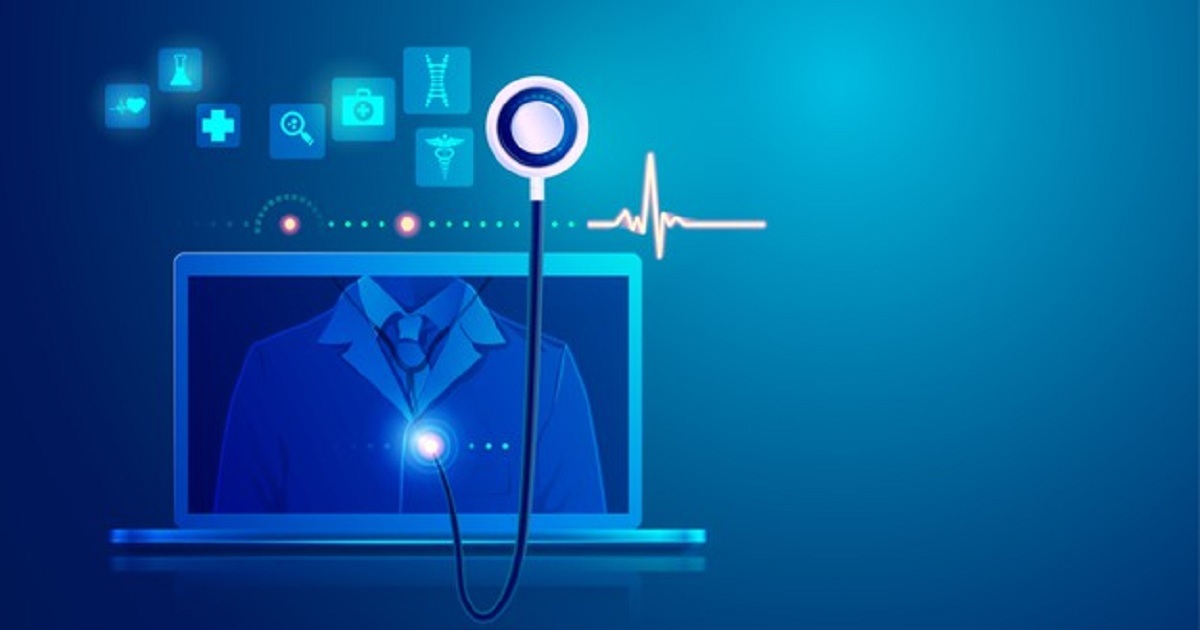
Health Technology, Digital Healthcare
Article | September 8, 2023
As the COVID-19 pandemic upended the healthcare system, hospitals and doctor’s offices doubled down on technology and implemented a host oftelemedicine services, from virtual visits to remote patient monitoring and customized treatment plans.
The results were unexpected. Not only did telemedicine help bridge the gap between physicians and patients during the health crisis, but arecent J.D. Power studyfound that telemedicine also delivered increased customer satisfaction, outpacing other healthcare services.
Patient-centered care played the largest role in this shift. Technologies that let staff reach patients anytime, anywhere enabled providers to shift their functional focus away from simply treating issues to building better relationships.
Read More

Health Technology, AI
Article | July 18, 2023
Global efforts to tackle gender inequality have grown in recent years. But there is still so much to be done. Figures from the United Nations show that outcomes for women and girls continue to lag across a range of issues, including poverty, education, work and health. And according to the World Economic Forum, at the current rate, it will take 108 years to close the gender gap.
Although healthcare is founded in objectivity and science, gender bias is still remarkably common. We wanted to understand more about female perceptions of healthcare, so we undertook consumer research that delved into the experiences of women compared to men. The results pointed to a clear disparity, finding that women are less likely to visit the doctor when they have symptoms of ill health and, in some cases, are taken less seriously when they do seek medical advice.
Women being left behind
According to our research, a significant proportion of British women feel disappointed in the healthcare they receive, with one in five reporting they weren’t taken seriously when presenting symptoms to a healthcare provider. What’s more, a staggering one in four said they are reluctant to seek medical advice at all for fear of wasting a GP’s time. These statistics suggest that, not only are female experiences of healthcare damaging their relationship with clinicians, but they could be eroding confidence in recognising and acting on warning signs and symptoms too.
This sentiment is particularly evident when focusing on cardiac care. One in eight women (13%) feel ignored when presenting symptoms of heart disease to healthcare professionals, compared to just 4% of men. And of UK adults who have received a coronary heart disease (CHD) diagnosis, women experiencing symptoms were 55% more likely than men to visit the doctor multiple times before receiving a referral for further investigation. On top of this, women are five times more likely to receive a false finding from the cardiac stress tests that are traditionally used to assess heart health.
“There does appear to be a gender bias in onward referral to secondary care and for diagnostics in the local area, which is influenced by the attending healthcare professionals’ risk assessment. Traditional teaching has led to gender bias, as we are programmed to attribute a lower level of pre-test probability and risk to females. This may have contributed to a general lack of awareness around cardiovascular health in women. For example, in a survey I carried out among more than 600 female employees working within North West Anglia NHS Foundation Trust, 82% said they didn’t feel informed about their cardiovascular health. Considering participants included some of the most medically informed women in the UK, the results speak volumes about how we view cardiac health among women.”
- Dr Rebecca Schofield, consultant cardiologist at North West Anglia NHS Foundation Trust
These widespread misconceptions around heart disease and heart attacks are often exacerbated by what we see in the media – think of the countless TV stereotypes of male characters clutching their chests and falling to the floor.
But given that CHD is responsible for one in 13 female deaths, it appears that public health efforts have failed to make people aware of the risks for women. It is, perhaps, not surprising then that 42% of women with CHD did not immediately recognise their symptoms as signs of heart disease. In short, women are missing out on time-critical diagnoses and treatment due to a lack of awareness and education among both healthcare providers and the public.
Technologies making a difference
Thankfully, progress is being made to improve healthcare outcomes for women. Innovative technologies are increasingly providing diagnostic solutions that can reduce incidences of human bias and give clinicians greater clarity on the presence or severity of different conditions in their female patients.
For example, AI is already being used to detect diseases such as cancer more accurately. Its adoption is facilitating reviews and translations of mammograms 30 times faster, with 99% accuracy, reducing the need for unnecessary biopsies.
There’s extraordinary potential for AI and healthcare, and it’s something the NHS continues to recognise, most recently with the launch of its Artificial Intelligence Laboratory (AI Lab) and NHS England’s (NHSE) MedTech Funding Mandate. The latter aims to accelerate the uptake of selected innovative medical devices, diagnostics, and digital products to patients.
As part of the NHS efforts, NHSE has mandated the HeartFlow Analysis for use in hospitals across England for patients, male or female, who might otherwise be sent for a cardiac stress test. The HeartFlow Analysis is a gender-neutral technology that takes data from a coronary CT scan of the heart and leverages deep learning (a form of AI) and highly trained analysts to create a personalised, digital 3D model of each patient’s coronary arteries. This then helps clinicians to quickly diagnose CHD and decide the appropriate treatment for patients of any gender. Time spent in hospital is minimised for patients and often layered testing and unnecessary invasive diagnostic procedures can be avoided.
Final thoughts
While AI is helping us tackle gender bias in certain areas such as oncologic and cardiac testing, healthcare professionals are not absolved of responsibility when it comes to confronting this problem. It remains incumbent upon clinicians to recognise unconscious bias that would deter them from referring women or minority patients for much-needed testing.
Outside of the hospital, public health education efforts must expand so that far more of us can recognise shortness of breath, nausea, vomiting, back or jaw pain, and other symptoms beyond chest pain to be indicators of a heart attack in a woman. Knowing what to look for and overcoming personal bias that might lead to these signs being disregarded, may allow us to help one of the more than 100 women who will experience a heart attack in the UK today.
Read More

Health Technology
Article | September 12, 2023
Explore the evolution of healthcare by diving deep into these EHR trends, as they pave the way for the future of EHR. Embrace cutting-edge solutions to enhance patient care and optimize operations.
1. Introduction
2. Significance of EHR Trends
3. Top 10 EHR Trends Shaping the Healthcare Industry
3.1 EHR Interoperability
3.2 Patient-reported Outcome
3.3 Patient Portals
3.4 Generative AI
3.5 Cloud-based EHR
3.6 Voice-enabled EHRs
3.7 Predictive Analytics
3.8 Robotic Process Automation
3.9 Telehealth-EHR Integration
3.10 Blockchain for EHR Data Integrity
4. Future Scope
1. Introduction
Electronic health records (EHRs) have transformed the medical industry by revolutionizing how medical information is recorded, accessed, and utilized. This article focuses on the EHR trends and innovations that have reshaped the healthcare field, paving the way for a more efficient and patient-centric future.From enhanced interoperability to cutting-edge technologies, professionals can unravel the key trends propelling future of EHR toward a new era of healthcare delivery.
2. Significance of EHR Trends
The importance of EHR software technology trends is highlighted by their transformative influence on the healthcare sector. This transformation was further expedited by the impact of the COVID-19 pandemic, which played a critical role in the increased adoption of telehealth services. As the pandemic necessitated alternatives to in-person visits, the demand for efficient and remote medical services surged, propelling telehealth to the forefront. Yet, looking beyond pandemic responses, the ongoing adoption of EHR trends in healthcare can significantly reshape how healthcare functions. Embracing these EHR trends enhances efficiency, facilitates personalized care, improves data exchange, drives data-driven insights, and empowers patient engagement. Irrespective of global events, it remains essential for healthcare facilities to stay abreast of these trends to remain adaptable and deliver optimized care, ultimately benefiting both providers and patients.
3. Top 10 EHR Trends Shaping the Healthcare Industry
Recognizing significant industry trends becomes crucial in a field that is constantly subject to technological advancement and global change. From adopting advanced technologies to prioritizing sustainability and customer-centric approaches, these EHR trends hold the power to bring about significant transformations across the healthcare sector.
3.1 EHR Interoperability
EMRs face a notable limitation in their ability to integrate with other systems, whereas EHRs offer robust interoperability, enabling seamless data exchange among healthcare facilities. As the demand for interoperability grows, the distinction between EMRs and EHRs becomes increasingly blurred, with vendors referring to products as EMRs that closely resemble what was initially known as EHRs. In response to this trend, developers and IT specialists continually update EHR systems to comply with interoperability policies, making EHRs more appealing for organizations seeking comprehensive and connected healthcare records.
3.2 Patient-reported Outcome
Patient-reported outcome or PRO EHR integration involves incorporating patient-reported outcome measures into electronic health record systems. PROs gather information directly from patient records about their health status, symptoms, and quality of life. These insights provide valuable subjective data for healthcare providers. For orthopedic patients at the clinic, completing surveys on their smartphones via a mobile link is easy. Clinicians can access patient responses during or after appointments to offer tailored care recommendations based on survey readings. Access to patient-reported outcome data empowers clinicians to deliver patient-centered care, fostering greater patient involvement in their treatment journey.
3.3 Patient Portals
Patient portals in EHRs are pivotal in modern healthcare practices as the industry embraces digital transformation. Patient portals within EHR systems are crucial to empowering individuals and facilitating communication between patients and healthcare professionals. These portals enable patients to access their personal health information securely. Patients can schedule appointments, ask questions, and even have virtual consultations, making healthcare more accessible and patient-centered. With improved communication and engagement, patient portals bridge the gap between individuals and healthcare professionals.
3.4 Generative AI
Integrating generative AI tools with Electronic Health Record systems holds immense promise for advancing healthcare industry. Generative AI can significantly enhance EHR software precision and overall technology, resulting in streamlined daily workflows and enabling healthcare providers to prioritize patient care. By utilizing patterns and structures from existing data to create new content resembling the training data, generative AI brings valuable improvements to EHR systems. These benefits include efficiently filling in missing data, enhancing clinical decision support, automating documentation and coding processes, and ensuring billing accuracy, thereby alleviating the burden on healthcare providers.
3.5 Cloud-based EHR
Cloud computing is gaining traction as medical organizations explore the benefits of outsourcing administrative and clinical services, including medical billing, reporting, lab integration, and more. With the increasing adoption of EHR systems, the advantages of easy access to patient data have become crucial. As the patient population continues to grow, the complexity of data rises, demanding solutions that ensure secure storage and accessibility. Embracing cloud-based infrastructure becomes imperative in this scenario, granting healthcare professionals the flexibility to access data using tablets or smartphones safely. This integration empowers clinicians to enhance their productivity in the clinical environment, laying the groundwork for long-term success by offering mobility solutions that cater to evolving healthcare demands.
3.6 Voice-enabled EHRs
Integrating voice recognition technology with EHR systems is a significant advancement for clinicians. By allowing hands-free input of information and patient data, voice recognition technology reduces inaccuracies and speeds up information recording. Additionally, with the support of AI, EHRs equipped with voice recognition can assist doctors in recognizing historical patient trends and making accurate diagnoses. As companies strive to incorporate AI into EHRs through voice-enabled technology, physicians can effortlessly access patient data and inquire about specific health parameters, such as the last recorded iron levels from a blood test. This streamlined approach improves efficiency and enhances the overall healthcare experience and decision-making process.
3.7 Predictive Analytics
Predictive analytics applications have become a significant driving force within the healthcare industry, yielding profound impacts on diverse areas, including cancer treatments and emergency staffing optimization. As the field continues to evolve, the adoption of predictive analytics technology is expected to expand further. Specialized healthcare app development services utilize AI-powered analytic methods, such as statistics, data mining, and modeling, in conjunction with AI capabilities to offer clinical outcome predictions based on real-time device data and electronic health records. This integration aims to elevate the patient experience and improve care delivery, equipping healthcare professionals with valuable insights to make more informed and proactive care decisions.
3.8 Robotic Process Automation
Robotic Process Automation (RPA) is driving the expansion of the automated data capture market for electronic health records worldwide, owing to its ability to enhance workflows and ensure increased accuracy. By automating data capture through robot-based processes, RPA eliminates the need for manual data entry, leading to improved precision. In the healthcare industry, RPA serves as an effective technique to address EHR flaws without requiring a complete system redesign, permitting the utilization of digital labor to preserve efficient processes while resolving underlying issues. By employing system algorithms and programs, RPAs efficiently automate tasks typically carried out by human resources, accelerating the digitization of medical facilities and promptly addressing imperfections.
3.9 Telehealth-EHR Integration
Integrating EHR systems with telehealth platforms revolutionizes healthcare by facilitating remote care and streamlining clinical workflows. This alliance will enable medical organizations to deliver high-quality patient care from a distance while ensuring the swift and secure transfer of patient information between systems and interfaces. The combined power of telehealth and EMR systems enhances virtual care activities, automates data entries, and synchronizes insurance information in a single window, thus optimizing efficiency and productivity for healthcare providers and their staff. Moreover, this integration strengthens patient-physician engagement and fosters seamless collaboration among healthcare teams.
3.10 Blockchain for EHR Data Integrity
While blockchain technology gained prominence through its association with cryptocurrency, its application in healthcare is steadily gaining momentum. By utilizing cryptography, blockchain ensures the utmost security and integrity of EHR data, limiting access to authorized individuals only. In healthcare, blockchain brings value, from validating clinical trials and verifying claim results to monitoring medicine distribution, authenticating prescriptions, and combating insurance fraud. Additionally, smart contracts leverage blockchain to automate actions based on predetermined outcomes, reducing the need for extensive human involvement. Although the adoption of blockchain in healthcare technology is still in its early stages, several EHR systems have already incorporated it to enhance security, scalability, and confidentiality measures.
4. Future Scope
The convergence of IoT devices and big data technology is set to revolutionize the healthcare experience, offering unprecedented digitization and patient engagement. The disruptions brought on by the COVID-19 pandemic have underscored the need for healthcare institutions to adapt and embrace technological advancements. Careful selection of the right EHR system is crucial for healthcare organizations, and a structured approach that involves key stakeholders, requirements definition, vendor evaluation, and implementation planning is essential for successful EHR implementations. The ultimate goal remains to enhance patient care, streamline workflows, and achieve operational efficiencies. While EHRs have already made significant strides in the industry, the future of electronic health records holds even more excellent benefits and technological impact, with healthcare mobile app developers playing a vital role in the value-based healthcare model and preparing for EHR optimization.
Read More

Article | April 15, 2021
Government bodies have organized vaccination drives from the days of paper, pen and file folders. Nations across the globe have successfully run vaccination programs on a large scale.
In countries such as India, with the second-largest population, a vaccination campaign to eradicate polio was delivered at specified centers and going door-to-door. India was declared officially polio-free in March 2014. All without technology!
Routine vaccination administration has always been either by a scheduled or walk-in appointment. Vaccinating populations for polio, smallpox or similar diseases has always been a part of a multi-year plan for governments.
Read More